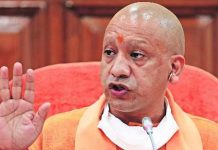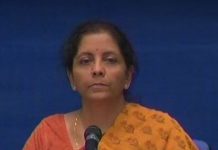Over the last seven decades, many states have witnessed tensions over the role of governors who have reportedly been blamed for not maintaining independence in their decision-making powers. Recently, the Supreme Court while hearing a case where the governor of Punjab did not summon the Assembly even after the cabinet’s recommendation, told both the governor and the chief minister that while the state government is duty-bound to furnish information sought by the Governor, the governor has to accept the recommendations of the CM-led Cabinet on convening the Assembly session.
Then came the news that the Tamil Nadu governor R N Ravi had returned a Bill that prohibits online gambling for reconsideration. Of course he has the powers to return the Bill. The Governor walked out of the Assembly after Chief Minister MK Stalin moved a resolution which stated that only the customary speech by the government would go on record for the first day of the House’s winter session. The row ensued after the governor skipped a few words including the ‘Dravidian model of governance’. In the recent past, roles of governors across Delhi, Punjab, Puducherry, Maharashtra, Tamil Nadu, Kerala and West Bengal have been questioned.
In the recent past, Tamil Nadu had sought a recall of the governor, in Kerala, the government had proposed an ordinance route to replace Arif Mohammed Khan as chancellor of state universities, in Telangana, Governor Tamilisai Soundararajan had expressed doubts about her phone being tapped. In West Bengal, Chief Minister and TMC leader Mamata Banerjee and the then Governor, Jagdeep Dhankhar had far from cordial relations and the State Assembly had even passed a Bill seeking the appointment of the CM as the chancellor of 17 state universities replacing the governor. In Delhi, which is not a full state, the ruling AAP and the L-Gs had been fighting ever since 2014 when the party first came to power in the national capital. In Puducherry, a former Lieutenant Governor was criticised by the state government for her alleged ‘interventions’. These incidents speak volumes about relations going sour and on the role of governors as per Article 163 of the Constitution.
Awards winning journalist and author, Kumkum Chadha who is known for her no holds barred writings, has done the Tehelka Cover Story ‘Racing to the Bottom’ after the apex court cautioned policy makers not to let the level of discourse degenerate into a “race to the bottom”. Deliberate procrastination on the part of governors in the matter of important Bills is often used as a ploy to raise anxiety among duly elected governments. The ruling parties in states allege that the dispensation at the Centre was trying to rule by proxy through governors allegedly using the latter as the ‘party’s extension’. A cordial relationship between the governors and the chief ministers is vital for any state’s progress. The Supreme Court has already set the tone by advising that the constitutional discourse must be conducted with decorum and statesmanship.













